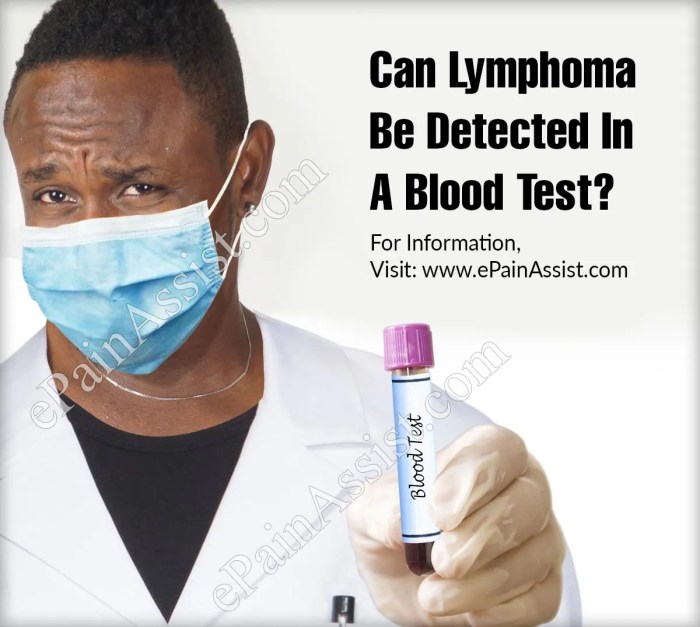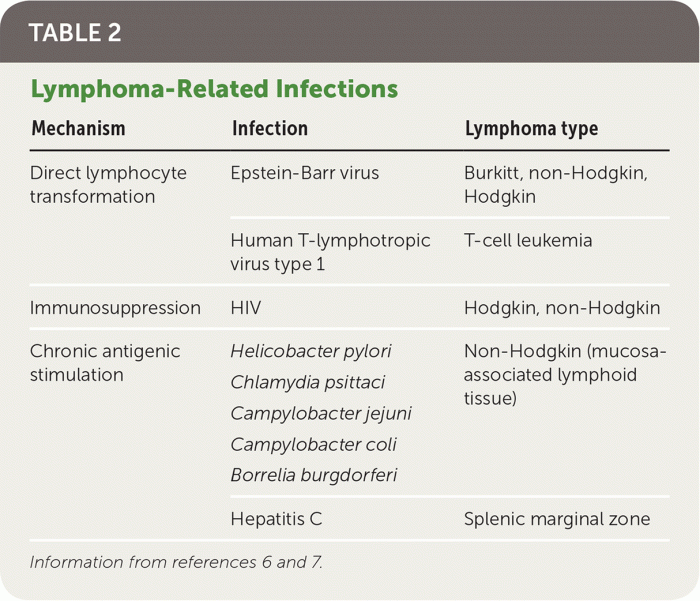Have i got lymphoma quiz – Have you been experiencing unexplained symptoms like fatigue, night sweats, or swollen lymph nodes? Take our quick quiz to assess your risk of lymphoma, a type of cancer that affects the lymphatic system.
This comprehensive guide will provide you with valuable information about lymphoma, its symptoms, diagnosis, treatment options, and prognosis. Whether you’re concerned about your own health or that of a loved one, this quiz will empower you with knowledge and help you make informed decisions.
Understanding Lymphoma

Lymphoma is a type of cancer that originates in the lymphatic system, a network of vessels and nodes that helps fight infection. It can affect any part of the lymphatic system, including the lymph nodes, spleen, bone marrow, and other organs.There
are two main types of lymphoma: Hodgkin lymphoma and non-Hodgkin lymphoma. Hodgkin lymphoma is characterized by the presence of Reed-Sternberg cells, which are large, abnormal cells that can be seen under a microscope. Non-Hodgkin lymphoma includes a wide range of different types of lymphoma, each with its own unique characteristics and prognosis.The
symptoms of lymphoma can vary depending on the type and stage of the disease. Common symptoms include:* Swollen lymph nodes
- Fever
- Night sweats
- Weight loss
- Fatigue
- Loss of appetite
The risk factors for developing lymphoma include:* Age: Lymphoma is more common in older adults.
Gender
Have you taken the “Have I Got Lymphoma?” quiz? If so, you might be interested to learn about the root “duc,” which means “to lead” in Latin. This root is found in many English words, such as “educate,” “reduce,” and “abduct.”
These words all relate to the idea of leading or guiding something. If you’re curious about other words with this root, check out this article: words with the root duc . Now, back to the quiz – what did you get?
Men are more likely to develop lymphoma than women.
Family history
People with a family history of lymphoma are at an increased risk of developing the disease.
Weakened immune system
People with weakened immune systems, such as those with HIV/AIDS or those who have had an organ transplant, are at an increased risk of developing lymphoma.
Certain infections
Some infections, such as Epstein-Barr virus and Helicobacter pylori, have been linked to an increased risk of lymphoma.
Symptoms and Diagnosis

Lymphoma can manifest in a variety of symptoms, and recognizing them early on is crucial for timely diagnosis and treatment. These symptoms can range from general discomfort to more specific indicators.
Common Symptoms
- Swollen lymph nodes, often in the neck, armpits, or groin
- Persistent fever
- Night sweats
- Unexplained weight loss
- Fatigue
- Shortness of breath
- Skin rashes or lesions
Diagnostic Tests
To confirm a diagnosis of lymphoma, healthcare professionals employ various tests:
- Biopsy:A tissue sample is taken from the affected lymph node or other suspicious area and examined under a microscope to detect abnormal cells.
- Blood tests:These tests can assess overall blood cell counts, detect specific proteins associated with lymphoma, and evaluate liver and kidney function.
- Imaging tests:Computed tomography (CT) scans, magnetic resonance imaging (MRI) scans, and positron emission tomography (PET) scans can provide detailed images of the body to identify enlarged lymph nodes or other areas of concern.
- Bone marrow biopsy:In some cases, a sample of bone marrow is taken to check for the presence of lymphoma cells.
Importance of Early Detection and Diagnosis, Have i got lymphoma quiz
Early detection and diagnosis of lymphoma are paramount for several reasons. Prompt treatment can significantly improve outcomes, as lymphoma is more responsive to therapy when it is caught in its early stages. Additionally, early diagnosis allows for the selection of the most appropriate treatment plan, maximizing the chances of successful remission.
Treatment Options: Have I Got Lymphoma Quiz

Lymphoma treatment options vary depending on the type and stage of the disease. The primary goal of treatment is to achieve remission, which means there is no evidence of the disease. Treatment may involve one or more of the following approaches:
Chemotherapy
Chemotherapy uses powerful drugs to kill cancer cells. It can be given intravenously (through a vein), orally (by mouth), or both. Chemotherapy can be used alone or in combination with other treatments.
Radiation Therapy
Radiation therapy uses high-energy X-rays or other forms of radiation to kill cancer cells. It can be delivered externally (from a machine outside the body) or internally (through radioactive implants placed in or near the tumor).
Immunotherapy
Immunotherapy uses the body’s own immune system to fight cancer. It can be given through injections or infusions and may involve monoclonal antibodies, immune checkpoint inhibitors, or other agents.
Targeted Therapy
Targeted therapy uses drugs that specifically target certain molecules or proteins involved in the growth and spread of cancer cells. These drugs can be given orally or intravenously.
Stem Cell Transplant
Stem cell transplant involves replacing diseased bone marrow with healthy stem cells from a donor. This treatment is often used for aggressive types of lymphoma that have not responded to other treatments.
Factors Influencing Treatment Decisions
The decision about which treatment option is best for a particular patient depends on several factors, including:
- Type and stage of lymphoma
- Patient’s age and overall health
- Patient’s preferences
- Availability of treatment options
Potential Side Effects and Complications of Lymphoma Treatment
All treatments for lymphoma can have side effects and complications. The most common side effects include:
- Fatigue
- Nausea and vomiting
- Hair loss
- Low blood counts
- Skin reactions
- Mouth sores
Serious complications, such as infection, organ damage, and secondary cancers, are less common but can occur. It is important to discuss the potential risks and benefits of treatment with your doctor before making a decision.
Prognosis and Outlook

The prognosis of lymphoma patients varies depending on several factors, including the type of lymphoma, the stage at diagnosis, and the patient’s overall health. However, advances in treatment have significantly improved the outlook for many lymphoma patients.
- Overall survival ratesfor all types of lymphoma have increased significantly over the past few decades.
- Five-year survival ratesfor all types of lymphoma are now around 70%.
- Survival rates are higherfor patients with localized disease than for those with advanced disease.
- Survival rates are also higherfor patients who are younger and have no other major health problems.
Factors Affecting Prognosis
Several factors can affect the prognosis of lymphoma patients, including:
- Type of lymphoma: Some types of lymphoma are more aggressive than others and have a worse prognosis.
- Stage of lymphoma: The stage of lymphoma at diagnosis is a major factor in determining the prognosis.
- Age of the patient: Younger patients tend to have a better prognosis than older patients.
- Overall health of the patient: Patients with other major health problems tend to have a worse prognosis.
- Response to treatment: Patients who respond well to treatment have a better prognosis than those who do not.
Support Groups and Resources
There are many support groups and resources available for lymphoma patients and their families. These groups can provide emotional support, information about lymphoma, and help patients connect with others who are going through the same experience.Some helpful organizations include:
- The Leukemia & Lymphoma Society
- The Lymphoma Research Foundation
- The American Cancer Society
FAQ Overview
What are the common symptoms of lymphoma?
Swollen lymph nodes, fatigue, night sweats, weight loss, fever, and shortness of breath.
How is lymphoma diagnosed?
Through physical examination, blood tests, imaging scans, and lymph node biopsy.
What are the treatment options for lymphoma?
Chemotherapy, radiation therapy, targeted therapy, immunotherapy, and stem cell transplant.
